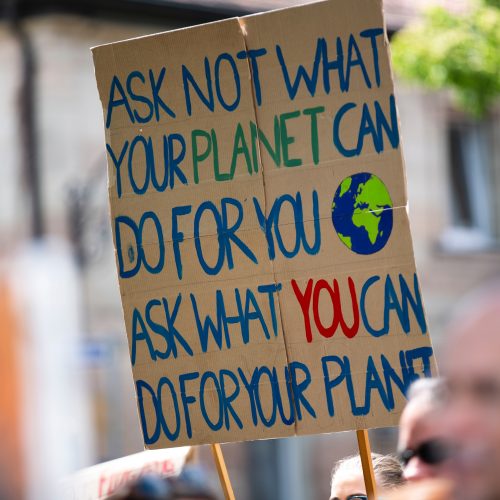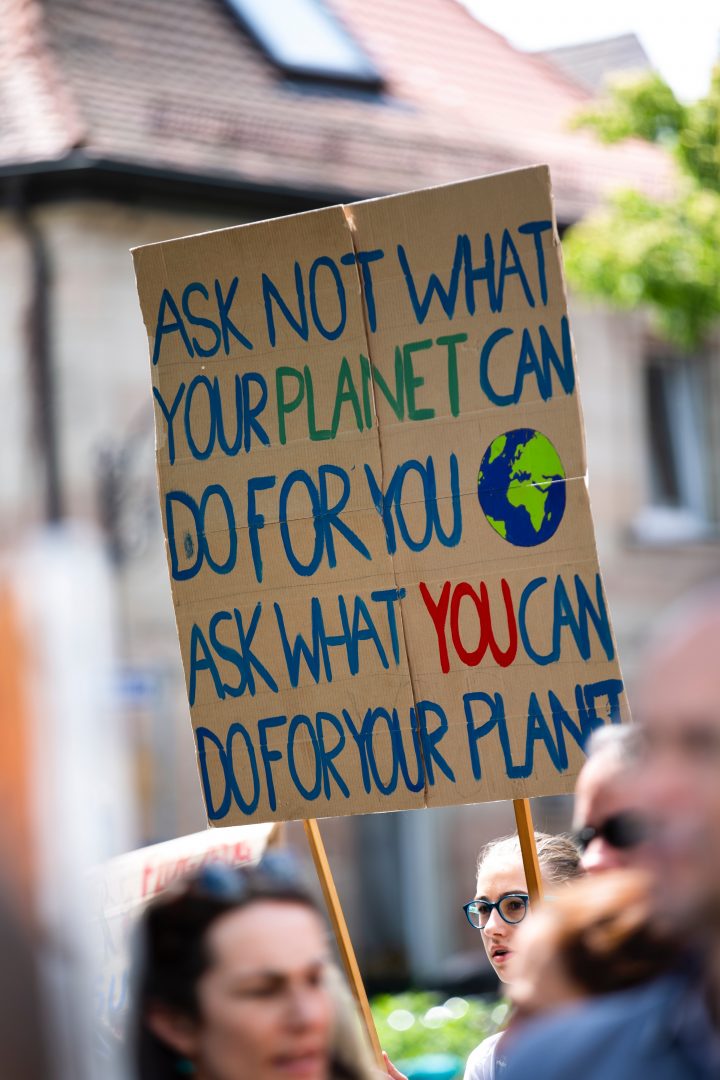
The writer’s role in climate emergency

It’s all too easy to feel impotent when it comes to saving the planet. We can recycle, take the bike to work, have our meat-free Mondays – and even go on a march. As writers we can use biodegradable pens, recycled paper and search engines that put their profits towards planting trees. But deep down, we fear our individual efforts are a drop in the plastic-choked, over-fished, polluted ocean.
But I’m here to try to inject a little optimism. Because individual writers, and artists of any kind, can do something huge. They can change the way we think. The arts make us empathic to the plight of others and they can make us change what we do, every day.
As writers, we take note of the world and we hold up a mirror to it. So we can’t ignore the threat to our world that comes from the known climate emergency.
How can we bring this into our writing, whatever form we choose?
A good start is to take a note of how the very best writers have already written about the environment. Start with your favourite novelists: try the ever-prescient Margaret Atwood (Oryx and Crake trilogy, 2003 – 13), or Barbara Kingsolver (Flight Behaviour, 2012) or Michael Crichton (State of Fear, 2004). If you want to know how early writers spotted the looming danger to the planet, read Jules Verne’s The Purchase of the North Pole from 1889.
There are many, many more excellent examples of writers from the 1960s to the present day, imagining and re-imagining the effects of human behaviour on the earth. Here, journalist Dan Bloom, who is credited with coining the term “cli fi”, explains why fiction can often reach people in a way that factual writing cannot:
“They use heart to write stories about these issues, not brain. They create characters the reader will care about and perhaps even identify with. Novels are about empathy. Scientific and political discussions in the media are never about empathy.”
Perhaps there’s a good reason why it’s young people who’re leading the calls for action on climate change. Just maybe, it’s because it’s been a theme for children’s writers for some years now. How many of us grew up with Watership Down by Richard Adams (1972)? To see how you can get a message about the environment across and still keep the story engaging, try Sarah Crossan’s Breathe (2012). If you’re a YA fantasy writer this US-based competition is well worth a look (closing date December 2019): https://www.davidhartenwatson.com/cli-fi-anthology-call-for-submissio
If you’re a poet, here’s a wonderful resource: a Guardian series of twenty poems on an environmental theme. And there’s more inspiration here, from the Chicago Review of Books.
Screenplay writers can be expected to deal with current concerns. See what you can learn from The Day After Tomorrow (2004) or Avatar (2009). And there are some award-winning documentaries too, such as An Inconvenient Truth (2006).
Arguably, any artistic response to the environment is a statement, of sorts, on conservation. Never feel that you have nothing new to say. Just because a subject is huge, don’t be afraid to consider it as a theme in your work. One day, it could speak to someone and change how they live.
And if you’ve produced some writing on the environment, do consider submitting it to the new OCA creative writing magazine vOCAb, which is planning a themed issue on the subject in the near future.
Photo by Markus Spiske temporausch.com from Pexels
|
|







Thank you for that reminder. Sometimes it feels like writing is all a writer can do in times like this. I know I was ‘politicised ‘ about climate change by reading Cormack McCarthy’s The Road. He doesn’t explain how the devastation came about, but readers can slot in their own imagined reality. Many writers of science fiction have had the same effect on me, Philip K Dick for example.
Fiction can be just as political as nonfiction – poetry too. As you say, writing can change how we live. The main thing is not to give up, and it seems that today’s kids are definitely of that persuasion.
Thanks, Linda, what great points.
Thanks – enjoyed this blog post Barbara. Very timely! And yes so interesting the role fiction can play in politics and change. Worth a mention here that New Writing North responded to the 19th Sep Global Climate Strike by commissioning a Climate Emergency Writer-in-Residence – applications are open until 1st November http://newwritingnorth.com/news/climate-emergency-writer-in-residence/
Barbara and Linda. Thanks for your suggestions. It’s heartening to be a writer – we can influence what’s going on. And I guess that is true for visual artists, too.
Yes, I spotted that after I’d sent the post – what a great idea! Thanks Dan!
Excellent post Barbara and a great reminder that artists and writers can often be prime movers in challenging and changing opinions. I am reminded of novelist and scriptwriter William Nicholson’s masterclass talk at BAFTA where he spoke about the writer’s role in the world: “Your greatness as a writer is your greatness as a human being”.
Jean Giono’s “The man who planted trees” is a beautiful story, described as being “allegorical”, of a man who planted acorns and saplings in land that was dying for lack of trees. Thanks to the action of one man, the area was re-wooded and brought to life. The author hoped readers would be inspired by the story to take action themselves.
Great quote!
Catch up on BBC Radio 4 24th March 2020 – The Cathedral Thinkers – those who dream beyond their own lifespans.
‘Farm as if you’re going to live forever; live as if you’re going to die tomorrow.’ Not sure who said that, but I wish I had.